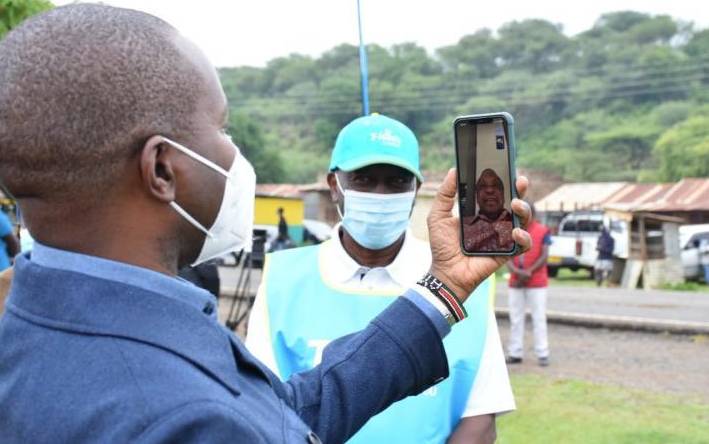×
The Standard e-Paper
Fearless, Trusted News

A video link interaction between President Uhuru Kenyatta and residents of Radad, Baringo County, highlighted the launch of commercial Google Loon technology in Kenya yesterday.
President Kenyatta, who was linked by Cabinet Secretary, Information Communication Technology Joe Mucheru via phone, said the technology will enable many youths to access job opportunities while also providing a platform to connect the health systems and improve livelihoods.